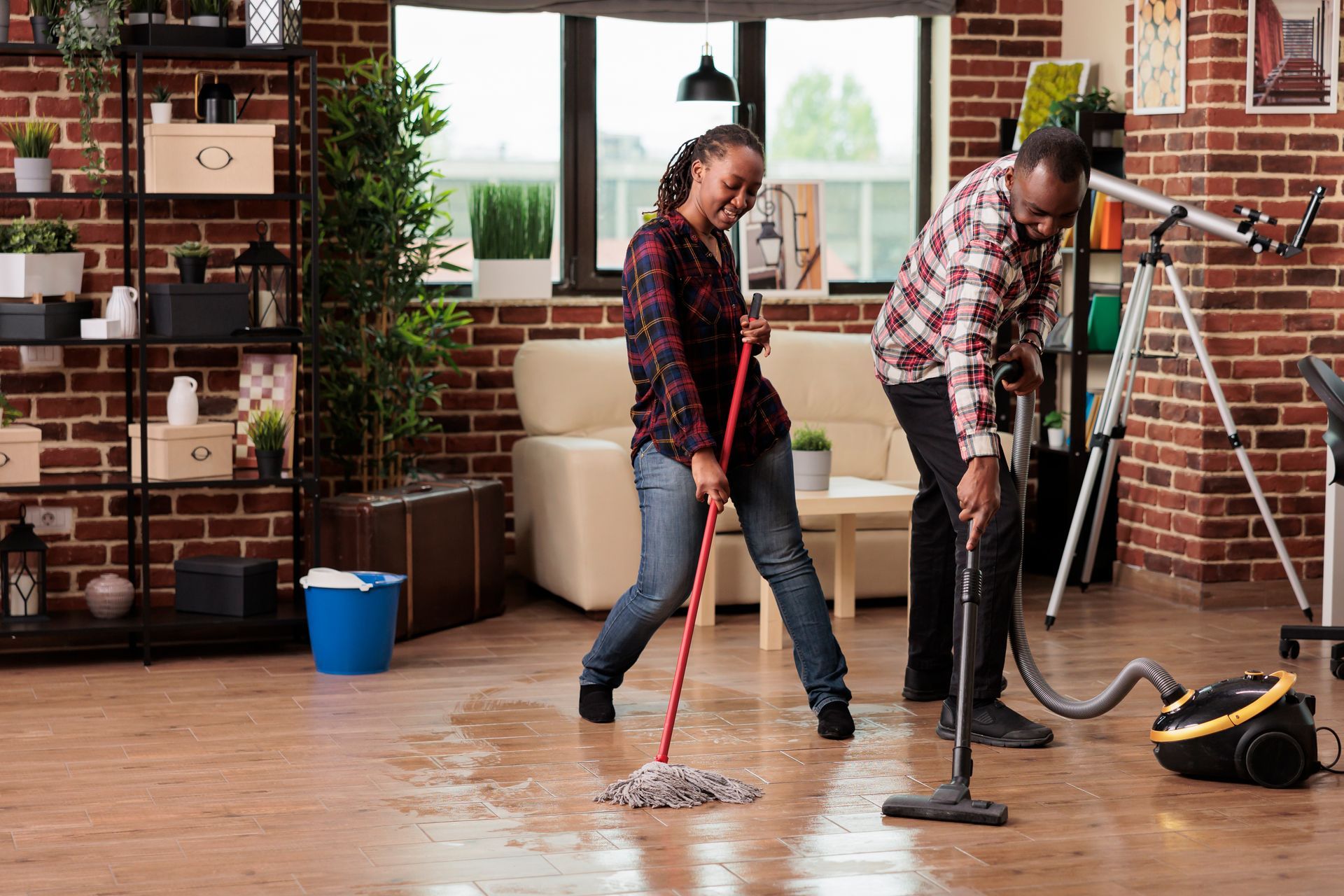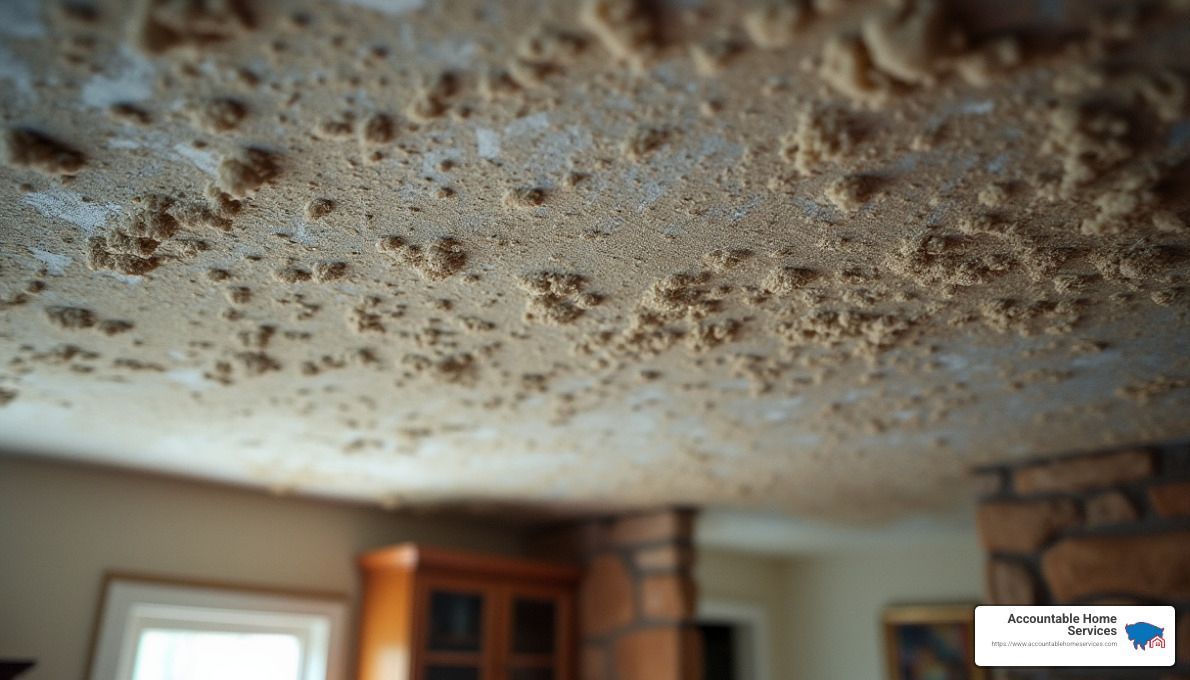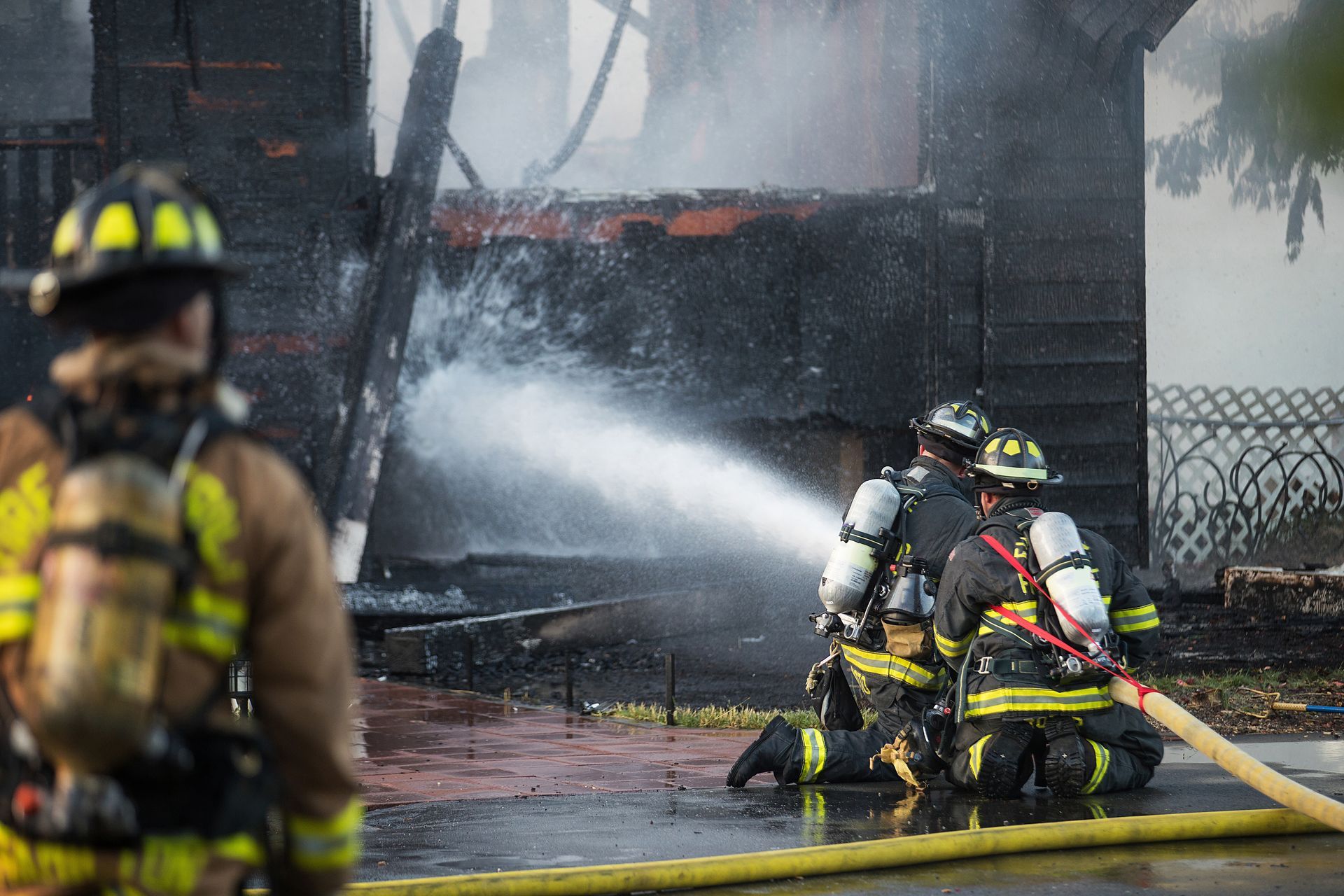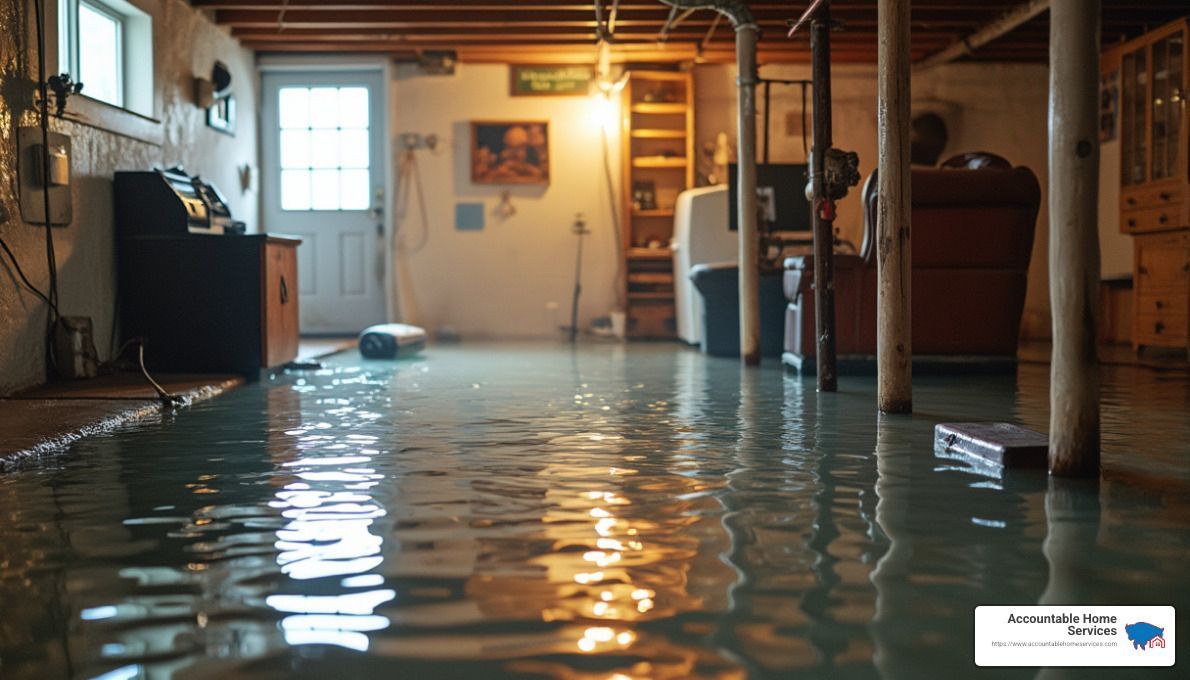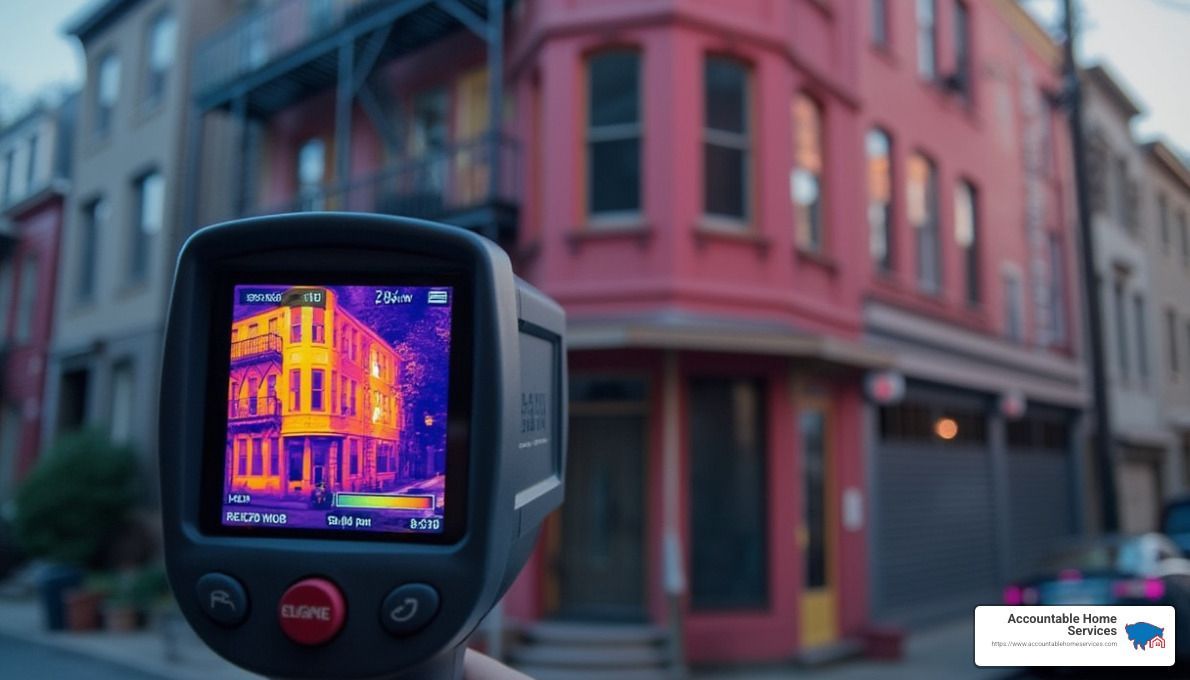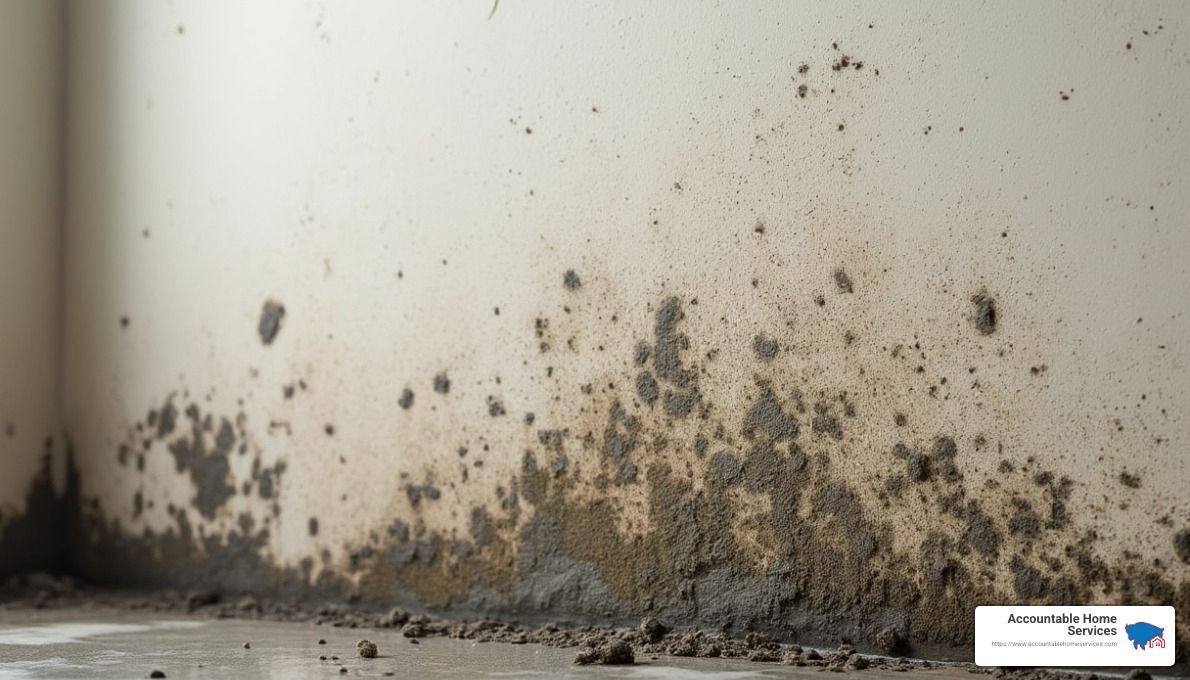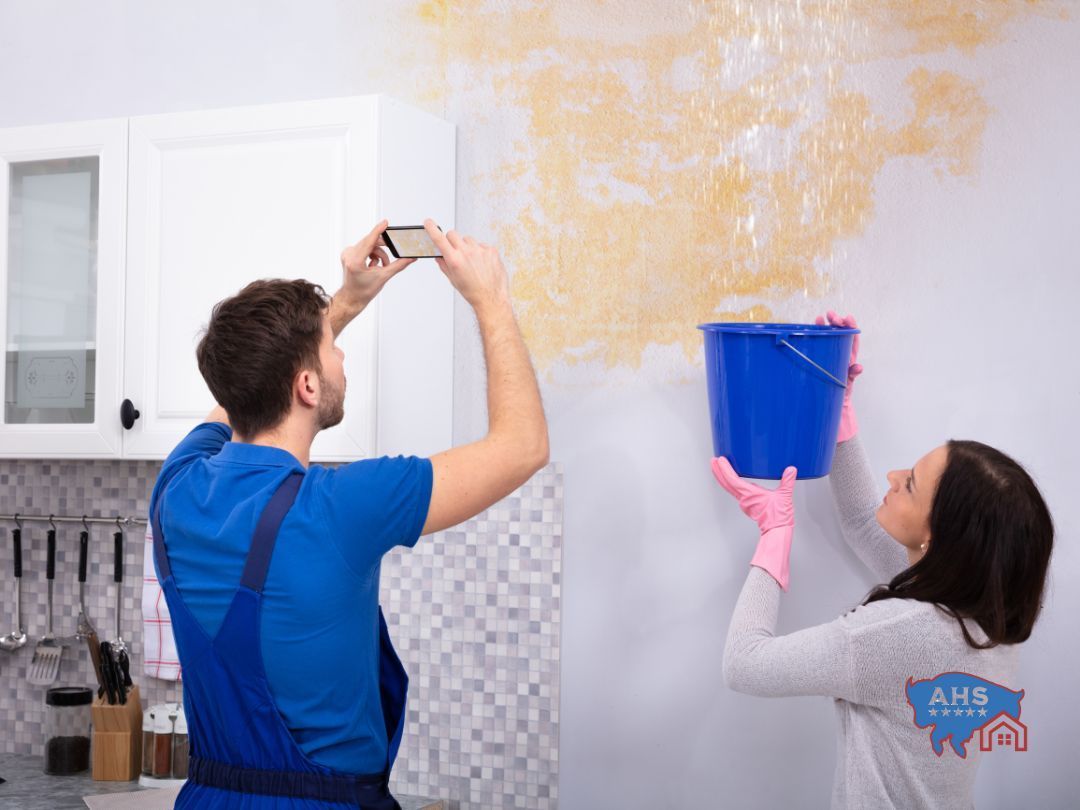Serving Broomfield, Westminster, and Denver Metro Area
Make the first call the
right
call
Blog
Basement water damage restoration is a critical process for homeowners facing unexpected flooding in their basements. Whether your basement is flooded due to burst pipes, poor drainage, or heavy storms, addressing the water damage promptly is essential to minimize possible safety risks and costly repairs.
When it comes to water damage, a swift response is crucial. Key steps involve:
- Prioritizing safety: Ensure you cut power to affected areas and wear protective gear.
- Identifying the source: Find and stop the water entry.
- Removing excess water: Use pumps and vacuums to clear standing water quickly.
- Preventing mold growth: Begin the drying process immediately to avoid long-term issues.
With over 65 years in the restoration industry, I am Mike Martinez, owner of Accountable Home Services. Specializing in Basement water damage restoration, my team and I leverage the latest techniques and equipment to ensure Denver homeowners can trust us to handle the complexities of flood restoration with expertise and care.
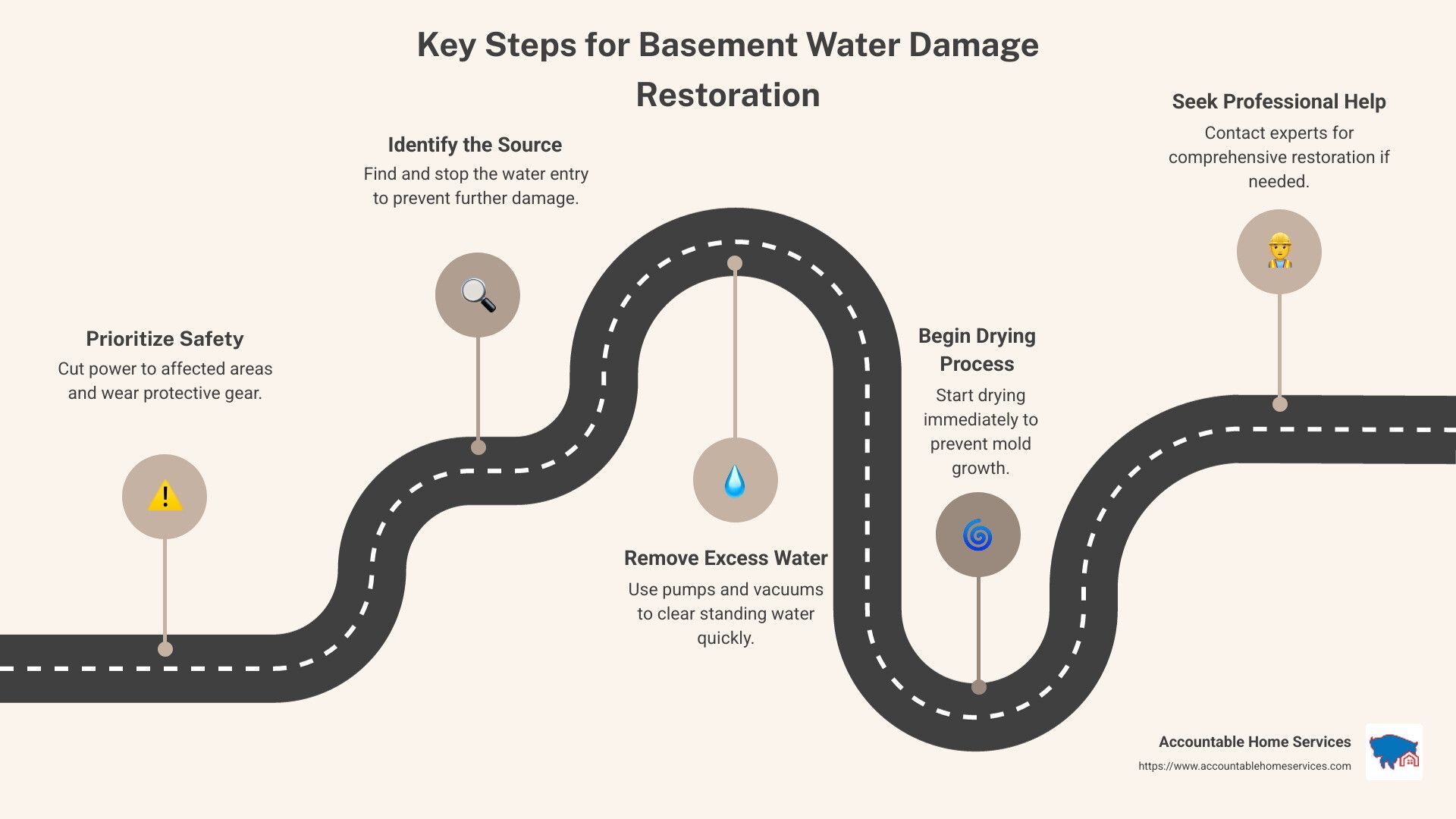
Causes of Basement Flooding
Basements are prone to flooding for several reasons. Understanding the causes can help you take preventive measures and protect your home. Let's explore the most common culprits:
Burst Pipes
A burst pipe is a leading cause of basement flooding. During cold spells, water in pipes can freeze and expand, causing the pipes to burst. This sudden release of water can quickly flood a basement. To prevent this, insulate your pipes and maintain a consistent indoor temperature.
Poor Drainage
Inadequate drainage systems around your home can lead to water pooling and eventually seeping into your basement. If your property isn't graded properly to direct water away from your foundation, you're at risk. Regularly clean gutters and extend downspouts to ensure proper water flow away from your house.
Heavy Storms
Severe weather, like heavy rain or snowmelt, can overwhelm drainage systems and lead to basement flooding. In Denver, where weather can be unpredictable, having a reliable sump pump and a well-maintained drainage system is crucial.
Sump Pump Failure
A sump pump is your basement's first line of defense against flooding. However, if it fails—due to power outages, mechanical issues, or lack of maintenance—your basement can flood. Consider a battery backup system for your sump pump to keep it running during power outages.
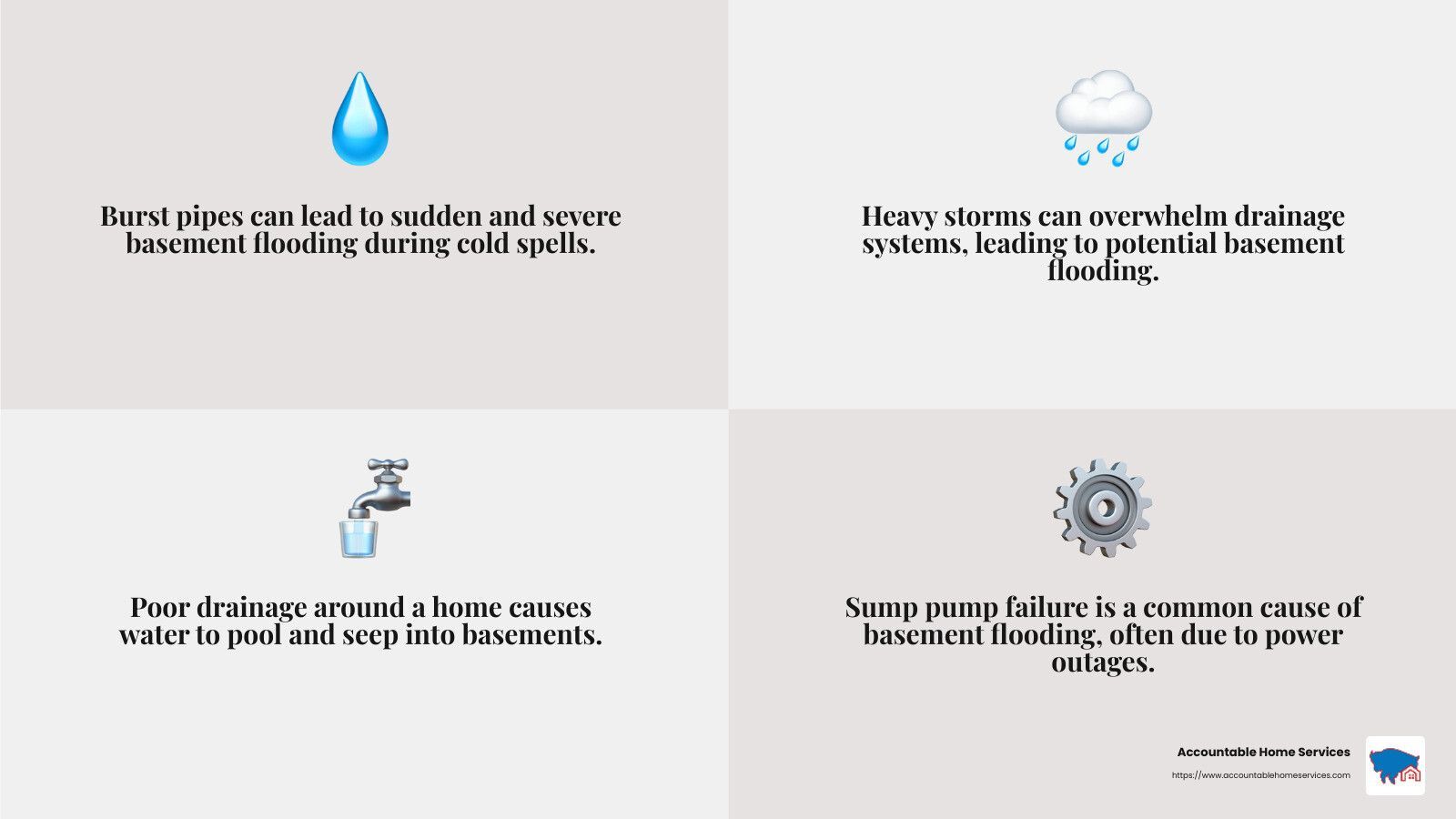
Pro Tip: Regular maintenance and inspections can prevent many of these issues. Schedule routine checks of your plumbing, drainage, and sump pump systems to catch potential problems early.
By understanding these causes, you can take proactive steps to protect your basement from flooding and the costly damages that come with it.
Immediate Steps to Take
When your basement floods, acting quickly is crucial. Here’s a step-by-step guide to ensure safety and minimize damage:
Safety First
Your safety and that of your family should be the top priority. Before entering a flooded basement, check for immediate hazards.
- Gas Leaks: If you smell gas, evacuate immediately and contact your gas company and the fire department from a safe distance.
- Structural Damage: Look for cracks, sagging ceilings, or bowing walls. These can indicate serious structural issues. If you see any signs, call a structural engineer before proceeding.
- Electrical Hazards: Water and electricity are a dangerous mix. Before you do anything else, ensure the power is off.
Turn Off Power
Locate your main electrical panel and turn off the breakers that supply power to your basement.
- Use Caution: If the panel is wet or you’re unsure which breakers to flip, use a plastic or wooden stick to avoid direct contact. Never touch the electrical panel if you’re standing in water. If in doubt, call a qualified electrician.
Remove Water
Once it's safe, start removing water to prevent further damage and mold growth.
- Minor Flooding: Use a wet/dry vacuum or mop and bucket for less than 6 inches of water.
- Moderate Flooding: A sump pump can help remove more significant amounts of water. Pump out no more than 1 foot of water every 24 hours to avoid structural damage. If water levels rise overnight, wait before pumping more.
- Major Flooding: For severe flooding, professional help is recommended. They have the equipment to handle heavy water extraction safely.
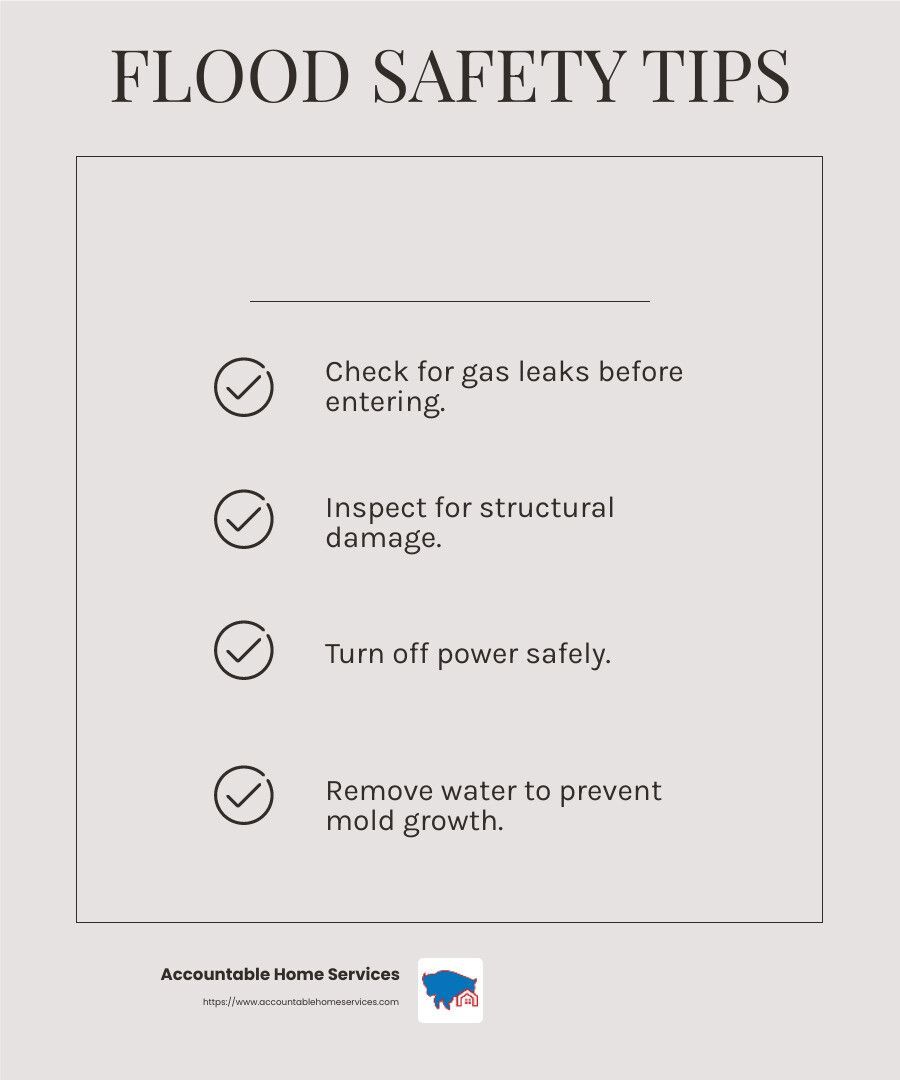
By following these immediate steps, you can mitigate the damage and start the basement water damage restoration process safely and effectively. Transition into professional help or DIY restoration next to continue tackling the aftermath of the flood.
Basement Water Damage Restoration
Once you've tackled immediate dangers, it's time to focus on basement water damage restoration. This involves drying out the area, preventing mold, and knowing when to call in the experts.
Drying Process
Drying your basement thoroughly is crucial to prevent further damage and mold growth. Here's what you need to do:
- Ventilation: Open windows and doors to allow fresh air to circulate. This helps speed up the drying process.
- Dehumidifiers and Fans: Use dehumidifiers and high-powered fans to remove moisture from the air. Renting commercial-grade equipment can make a big difference.
- Monitor Moisture Levels: Use a moisture meter to ensure materials like wood are truly dry. Aim for a moisture content of 15% or less.
Tip: Don't rely solely on air conditioning. It helps, but isn't designed for heavy-duty dehumidification.
Mold Prevention
Mold can start growing within 48 hours, so acting quickly is key:
- Clean and Disinfect: Use a bleach solution (3/4 cup bleach per gallon of water) to clean hard surfaces. This kills mold spores and disinfects the area.
- Remove Porous Materials: Carpets, drywall, and other porous items that have been soaked should be removed and replaced, especially if contaminated by black water.
- Inspect for Mold: Even if you don't see mold, a musty odor could indicate hidden growth. Consider professional help for a thorough inspection.
Remember: Mold remediation is safe as a DIY project if the area is small (10 square feet or less). For larger areas, hire a professional.
Professional Help
In some cases, professional help is the best option:
- Severe Flooding: If your basement is severely flooded, professionals have the right equipment and expertise to handle the situation safely.
- Black Water Contamination: This type of water is highly toxic and requires expert handling.
- Structural Concerns: If you're worried about structural damage, professionals can assess and address these issues.
Accountable Home Services is your trusted partner for basement water damage restoration in the Denver area. Our team of experts is ready to restore your home efficiently and safely, so you can get back to normal life.
Transitioning to the next section, let's explore the pros and cons of DIY restoration versus hiring professionals.
DIY vs. Professional Restoration
When faced with a flooded basement, deciding between a DIY approach and hiring professionals is crucial. Here's what to consider:
Cost Considerations
DIY: Handling the restoration yourself can save money upfront. You'll avoid labor costs, which can be significant. However, you'll need to rent or buy equipment like dehumidifiers and fans, which can add up.
Professional: Hiring experts like Accountable Home Services may seem more expensive initially. Yet, they have the skills and tools to do the job right the first time. This can prevent costly mistakes and further damage, saving you money in the long run.
Safety Concerns
DIY: Safety is a major concern when dealing with water damage. If there's electrical damage or black water contamination, it's risky to handle it yourself. Always ensure power is off and wear protective gear.
Professional: Professionals are trained to handle hazardous situations safely. They know how to deal with electrical risks and contaminated water, ensuring your home is safe for you and your family.
Equipment Needs
DIY: For a DIY restoration, you'll need equipment like moisture meters, dehumidifiers, and fans. High-powered commercial equipment is more effective but can be costly to rent.
Professional: Professionals come equipped with industrial-grade tools designed for effective water extraction and drying. They can also identify hidden moisture that DIY methods might miss, reducing the risk of mold growth.
In Summary: While DIY restoration can be tempting to save money, consider the risks and potential costs of mistakes. Professional services like those from Accountable Home Services offer peace of mind with their expertise and equipment, ensuring your basement is restored safely and effectively.
Next, let's dive into how to prevent future flooding in your basement.
Preventing Future Flooding
Keeping your basement dry and safe from future floods is crucial. Here are some effective strategies:
Waterproofing
Waterproofing your basement is the first line of defense against water intrusion. This process involves sealing walls and floors to keep water out. Basement Systems offers various solutions, including specialized sealants and coatings. These products create a barrier that prevents water from seeping through cracks and porous surfaces.
Benefits of Waterproofing:
- Protects your home’s foundation.
- Reduces the risk of mold growth.
- Increases property value.
Sump Pump Installation
A sump pump is essential for any basement prone to flooding. It automatically removes water that collects in the sump basin, typically found in the basement. A reliable sump pump with a battery backup can be a lifesaver during power outages.
Key Features to Consider:
- Battery Backup: Ensures the pump works during power failures.
- Alarm System: Alerts you if the water level is too high.
- Durability: Choose a pump made from corrosion-resistant materials.
Drainage Solutions
Proper drainage is vital to direct water away from your home. Consider installing or upgrading these systems:
- Perimeter Drainage System: Also known as a French drain, this system channels water away from your foundation.
- Downspout Extensions: These direct rainwater at least six feet away from your house, preventing pooling near the foundation.
- Grading: Ensure the ground around your home slopes away to guide water away naturally.
Benefits of Effective Drainage:
- Prevents water from pooling around your home.
- Reduces hydrostatic pressure on basement walls.
- Minimizes the risk of basement flooding.
By implementing these solutions, you can protect your basement from future water damage. Next, let's address some frequently asked questions about basement water damage restoration.
Frequently Asked Questions about Basement Water Damage Restoration
How much does it cost to repair a basement water damage?
The cost of repairing basement water damage can vary widely. On average, homeowners might spend anywhere from $1,000 to $10,000. However, several factors can influence this range:
- Extent of Damage: Minor water damage might only require drying and minor repairs, while severe flooding could need extensive restoration.
- Type of Water: Clean water from a burst pipe is less costly to address than black water from sewage backups, which requires specialized cleaning.
- Mold Remediation: If mold is present, additional costs for removal and prevention will arise.
- Structural Repairs: Damage to walls, floors, or the foundation can significantly increase costs.
Does homeowners insurance cover water leaks in the basement?
Whether homeowners insurance covers water leaks in the basement often depends on the cause of the leak. Generally, sudden and accidental events like a burst pipe are covered. However, insurance typically does not cover:
- Gradual Damage: Leaks due to poor maintenance or wear and tear.
- Flood Damage: Standard policies usually exclude natural flooding. Separate flood insurance might be necessary for this coverage.
It’s crucial to review your policy details or speak with your insurance provider to understand what is covered.
What are the health risks of a flooded basement?
A flooded basement poses several health risks, primarily due to mold growth and hazardous materials:
- Mold Growth: Mold can develop within 24–48 hours of water exposure. It can cause respiratory issues, especially in those with allergies or asthma.
- Contaminated Water: Black water from sewage backups contains harmful bacteria and viruses, posing serious health risks.
- Structural Hazards: Water can weaken walls and ceilings, leading to potential collapses and physical injuries.
Addressing water damage promptly and thoroughly is essential to mitigate these risks. For severe cases, professional help is recommended to ensure safety and comprehensive restoration.
By understanding these aspects, homeowners can make informed decisions when dealing with basement water damage. Next, let's explore the debate between DIY and professional restoration.
Conclusion
At Accountable Home Services, we understand that a flooded basement can be a homeowner's nightmare. But don't worry—our restoration expertise is here to help you turn that nightmare into a manageable situation. With over 24/7 emergency response and direct insurance billing, we aim to make the basement water damage restoration process as stress-free as possible.
Our team is equipped with cutting-edge equipment and certified technicians ready to tackle any water damage issues in the Denver Metro Area. Whether it's drying out your basement, preventing mold, or making structural repairs, we handle it all with precision and care. We pride ourselves on our commitment to quality craftsmanship and transparent communication, ensuring that you are informed and confident every step of the way.
Not only do we restore your basement, but we also provide solutions to prevent future flooding, like waterproofing and sump pump installations. We are more than just a service provider; we are your trusted partner in maintaining a safe and beautiful home.
Ready to transform your basement from flooded to fabulous? Contact us today for a free consultation and let us show you why we're the best choice for your restoration needs in the Denver Metro Area.
By choosing Accountable Home Services, you're opting for reliability, expertise, and a dedication to making your home the best it can be.
SERVICE AREA
SERVING BROOMFIELD, WESTMINSTER, AND DENVER METRO AREA
Accountable Home Service services all of Denver Metro Area.
Below are some of the most common cities we work in!
SERVICE AREA
Don’t see your service area? We May still service your location. To know for sure, give us a call 720-620-3272 or complete the form on our contact Page and we’ll let you know.
100+ Clients Served
WHY CHOOSE US
What Makes Us The Accountable Home Services?
Family Owned
Proudly family-owned and operated, our company brings the values of service, integrity, and excellence to every job. We understand the importance of trust and reliability, especially when it comes to home restoration.
100% Free Estimates
We offer no-obligation, 100% free estimates to ensure you can plan your restoration with complete financial transparency. Our assessments are thorough, honest, and always upfront.
Fast Response Times
Rapid response is crucial in a crisis, and our team is committed to being there swiftly to minimize damage. We're ready around the clock, ensuring your emergency is tackled with urgency.
IICRC & IRI Certified
Each service is performed by our licensed and certified professionals, ensuring industry-standard quality. We pride ourselves on a skilled team equipped to handle your restoration needs expertly and efficiently.

CONTACT US
Get a Free Estimate Today
Contact us today at 720-620-3272 for all your restoration and clean-up needs in Denver, CO, and the surrounding areas.
CONTACT DETAILS
Phone:
Accountable Home Services
Accountable Home Services is a trusted national leader in the disaster restoration industry. Accountable Home Services currently has open opportunities nationwide.
IICRC Certified
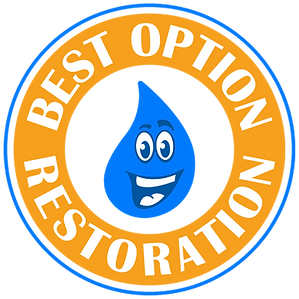
Schedule an Appointment 24/7
We’re here to help with your restoration and clean-up needs around Denver, CO, and nearby areas. Reach out to our team 24/7 for prompt, professional service tailored to your situation or call 720-620-3272
Contact Us
We will get back to you as soon as possible.
Please try again later.

